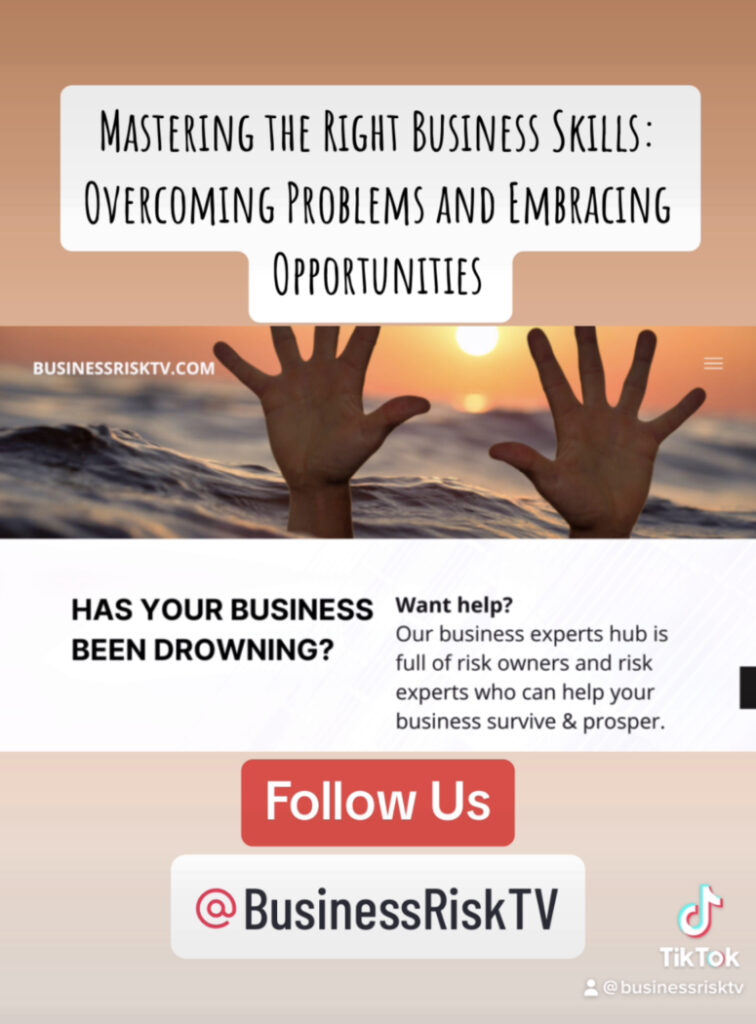The Entrepreneurial Landscape of 2024: Navigating Risks and Seizing Opportunities
The entrepreneurial spirit thrives on uncertainty, but 2024 promises a unique blend of both risks and opportunities that will test the mettle of even the most seasoned business builder. From the lingering shadows of a global pandemic to the accelerating pace of technological disruption, the landscape demands both keen awareness and calculated action. In this article, we’ll delve into the concerns and possibilities that await entrepreneurs in this dynamic year, providing insights on how to navigate the challenges and emerge victorious.
Risks That Demand Vigilance:
- Lingering Economic Turbulence: The aftershocks of the pandemic continue to ripple through global economies, with inflation, supply chain disruptions, and potential market downturns posing significant threats. Entrepreneurs must remain agile, adopt lean operational models, and prioritise financial resilience to weather these storms.
- Geopolitical Tensions: The rise of regional conflicts and trade disputes can disrupt supply chains, restrict market access, and fuel financial instability. Entrepreneurs must carefully assess their exposure to volatile regions, diversify their operations, and consider alternative sourcing and distribution channels.
- Technological Avalanche: The rapid evolution of artificial intelligence, automation, and other disruptive technologies necessitates constant adaptation. Entrepreneurs must embrace continuous learning, invest in upskilling their workforce, and prioritise innovation to stay ahead of the curve.
- Talent Wars: The competition for skilled talent is fiercer than ever, and attracting and retaining top performers is critical for success. Entrepreneurs must cultivate a strong employer brand, offer competitive compensation and benefits, and foster a culture of learning and growth to attract and retain talent.
- Regulatory Ebb and Flow: The regulatory landscape is constantly evolving, with new data privacy laws, cybersecurity regulations, and industry-specific mandates emerging. Entrepreneurs must stay informed about regulatory changes, ensure compliance, and leverage regulations to their advantage where possible.
Opportunities Ripe for the Taking:
- The Green Revolution: The global push towards sustainability and climate action presents a goldmine of opportunities for entrepreneurs. Developing innovative solutions in renewable energy, green infrastructure, circular economy, and sustainable agriculture can not only address pressing environmental concerns but also unlock lucrative market potential.
- The Age of Personalisation: Consumers are increasingly demanding personalised experiences, products, and services. Entrepreneurs can cater to this trend by leveraging data analytics, AI, and advanced customer relationship management systems to tailor offerings and build deeper customer relationships.
- The Wellness Boom: The focus on mental and physical well-being is a burgeoning market, particularly in areas like personalised healthcare, fitness technology, mental health solutions, and healthy food alternatives. Entrepreneurs can tap into this trend by developing innovative solutions that cater to the evolving needs of health-conscious consumers.
- The Decentralised Future: Blockchain technology and related innovations like cryptocurrencies and decentralised finance (DeFi) are opening up new avenues for entrepreneurs. Developing solutions for secure data management, blockchain-based platforms, and innovative financial products can unlock significant opportunities in this nascent space.
- The Rise of the Creator Economy: The explosion of social media and digital platforms has empowered individuals to become creators, influencers, and entrepreneurs. Developing tools, services, and platforms that support content creators, facilitate monetisation, and foster community building can unlock immense potential in this rapidly growing ecosystem.
Staying Ahead of the Curve:
To navigate the risks and seize the opportunities of 2024, entrepreneurs must prioritise proactive strategies:
- Become a Scanner, Not a Settler: Develop a constant curiosity about emerging trends, technologies, and customer needs. Actively scan the environment for potential threats and opportunities, remaining adaptable and open to pivoting when necessary.
- Embrace Continuous Learning: The ability to learn and adapt is vital in today’s dynamic landscape. Invest in your own learning, encourage professional development within your team, and stay ahead of the curve by acquiring new skills and knowledge.
- Build a Network of Support: Surround yourself with mentors, advisors, and fellow entrepreneurs who can offer guidance, share best practices, and provide support during challenging times.
- Embrace Failure as a Learning Tool: The path to success is rarely linear. View failures as learning experiences, analyse what went wrong, and use those insights to improve and move forward.
- Focus on Value Creation: Ultimately, success hinges on creating genuine value for your customers. Clearly define the problem you’re solving, deliver exceptional solutions, and prioritise customer satisfaction above all else.
The Future of Entrepreneurship:
The future of entrepreneurship is a vibrant tapestry woven with challenges and opportunities. While risks like economic uncertainty and technological disruption pose formidable hurdles, entrepreneurs who cultivate agility, embrace innovation, and prioritise value creation will not only survive but thrive. The path will be demanding, but the rewards for those who navigate it successfully are immense: the chance to shape the future, make a positive impact, and build a legacy that endures. The entrepreneurial spirit will not be deterred by the complexities of 2024.
2024 and Beyond: The Evolving Landscape of Entrepreneurship
2024 stands as a pivotal point in the ever-evolving landscape of entrepreneurship. It’s a moment where the echoes of past disruptions intertwine with the nascent whispers of future transformations, demanding a keen awareness of both current threats and emerging opportunities. While the risks may seem daunting, they also paint a picture of a dynamic, vibrant ecosystem ripe for those with the vision and tenacity to seize its potential.
The entrepreneurial journey ahead won’t be a predictable stroll through a manicured park. It will be a rugged trek through uncharted territory, where adapting to shifting landscapes and overcoming unforeseen obstacles will be the norm. This demands a new breed of entrepreneur, one equipped with not just the courage to take risks, but the resilience to thrive amidst uncertainty.
Here are some key traits that will define the successful entrepreneur of tomorrow:
- The Futurist: With the pace of change accelerating, entrepreneurs need to become adept at identifying and anticipating future trends. They must cultivate a keen eye for the next big thing, whether it’s a technological leap,a cultural shift, or a burgeoning societal need.
- The Collaborator: The lone wolf entrepreneur is becoming a relic of the past. The future belongs to those who can foster effective collaborations, building ecosystems of partners, mentors, and stakeholders who bring diverse perspectives and expertise to the table.
- The Changemaker: The 21st century entrepreneur isn’t simply building businesses; they’re actively shaping the world around them. They understand the power of their ventures to address social and environmental challenges, and they leverage their resources to create positive impact beyond mere profit margins.
- The Learner: In the face of constant change, the ability to learn and adapt is paramount. Successful entrepreneurs will prioritize continuous learning, embracing new skills,technologies, and ways of thinking to stay ahead of the curve.
- The Storyteller: In a world saturated with information, the ability to capture attention and inspire through compelling narratives will be crucial. Entrepreneurs must master the art of storytelling, communicating their vision with clarity and passion to attract investors, talent, and customers alike.
The future of entrepreneurship isn’t a preordained script; it’s an open canvas waiting to be painted with the strokes of innovation, resilience, and purpose. For those who embrace the challenges and unlock the opportunities, 2024 and beyond hold the potential for extraordinary success. Remember, the greatest entrepreneurial endeavours often emerge from the ashes of challenges, fuelled by a burning desire to leave a lasting mark on the world. So, step into the arena, embrace the uncertainty, and seize the opportunities that await. The future of entrepreneurship belongs to those bold enough to shape it.
Get help to protect and grow your business
Subscribe for free risk alerts and risk reviews
Read more business risk management articles





